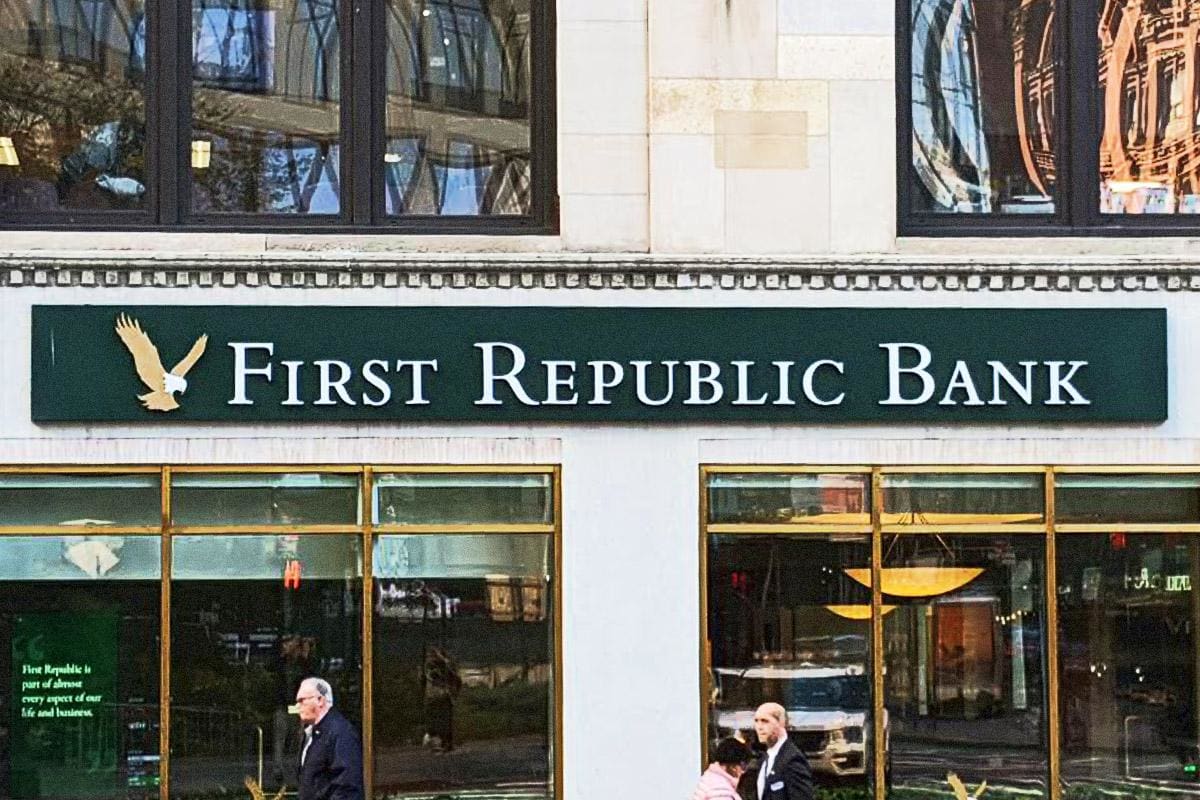
The banking crisis continues to take twists and surprise investors.
Four days after regulators unveiled an emergency bailout for depositors at Silicon Valley Bank to prevent contagion to the rest of the banking system, another regional bank is beginning to show alarming signs.
First Republic Bank (FRC) of San Francisco is exploring strategic options, according to Bloomberg News. One of those options is to sell itself, and if First Republic opted for to do this, many potential buyers could step up, says Bloomberg News.
The firm is also examining the possibilities of strengthening its liquidity.
First Republic Bank didn't immediately comment.
Top Executives Try to Reassure
Founded in 1985, the bank offers private personal banking, private business banking and private wealth management. It's present in eight states: California, Oregon, Massachusetts, Florida, Connecticut, New York, Wyoming and Washington.
FRC has said that its client base is more diverse than that of Silicon Valley Bank, which relied heavily on startups and venture-capital firms in its client base.
Following the setbacks of SVB (SIVB), First Republic Bank in recent days has sought to reassure the public regarding its liquidity. On March 12, the firm said its unused liquidity to fund operations totaled more than $70 billion from agreements with JPMorgan Chase and the Federal Reserve.
"First Republic’s capital and liquidity positions are very strong, and its capital remains well above the regulatory threshold for well-capitalized banks," Jim Herbert, founder and executive chairman, and Mike Roffler, president and CEO, said in a statement. "As we have done since 1985, we operate with an emphasis on safety and stability at all times, while maintaining a well-diversified deposit base.
"First Republic continues to fund loans, process transactions and fully serve the needs of clients by delivering exceptional service.”
But all these assurances did not prevent investors from selling off their First Republic Bank shares. The stock has lost 62% of its value since SVB closed on March 10.
As of Dec. 31, 2022, First Republic Bank had $212.6 billion in assets, according to a news release. Its 2022 revenue was $5.9 billion, up 16.5% from 2021, while the bank recorded 2022 net income of $1.7 billion, up 12.7%.
S&P and Fitch Concerned About Uninsured Deposits
The pressure on First Republic Bank is mounting. The rating companies S&P Global Ratings and Fitch Ratings downgraded the bank on March 15 because they believe that it will be more difficult for the firm to pay its debts.
The two credit-rating companies are concerned about First Republic Bank's amount of uninsured deposits, those accounts that exceed the $250,000 FDIC limit. Holders of these accounts might become concerned and decide to withdraw their money, creating a run on the bank.
The bank's credit rating was lowered to BB+ from A- by S&P Global Ratings, and it remains on CreditWatch negative, meaning S&P could lower the rating further.
"The bank’s business position will suffer after the volatile swings in its stock price and heightened media attention surrounding deposit volatility,” S&P wrote. "Its business stability has weakened as market perceptions of its creditworthiness have declined.”
"We believe the risk of deposit outflows is elevated at First Republic – despite actions by federal regulators."
Shortly after S&P, Fitch lowered the California bank's rating to BB from A-, a step below the S&P rating. Fitch also placed the rating on a negative watch, which, as with S&P, means that it could soon further reduce the rating.
Fitch says the bank has a very high concentration of wealthy customers, which is a "weakness" because their deposits aren't guaranteed. If those wealthy customers panic, it's unclear whether First Republic can respond to their withdrawal requests all at once.
"This not only drives a high proportion of uninsured deposits as a percentage of total deposits but also results in deposits that can be less sticky in times of crisis or severe stress,” Fitch explained
It continued: "Fitch believes this feature of the business model has resulted in franchise erosion following the high profile failures of SVB Financial and Signature Bank, despite the deposit base being more diversified from a sector/industry standpoint.”
Action Alerts PLUS offers expert portfolio guidance to help you make informed investing decisions. Sign up now.







